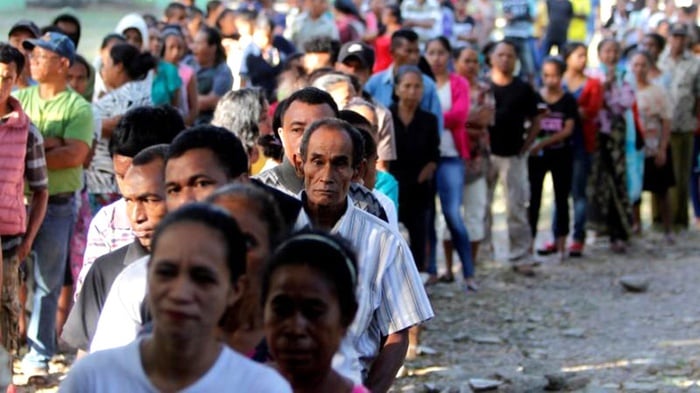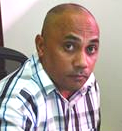Monday, March 14, 2016
BRUNEI-BASED businessman Hung Ah Hing decided to spend one afternoon in February donating wheelchairs to some hospitals in Timor-Leste. He considered it a form of corporate social responsibility. His company, after all, has been doing good business for the past few years, supplying medical oxygen to several Timorese hospitals.
Hung is the founder of Daikyo Environmental Services Sdn Bhd, one of the sultanate’s biggest waste management companies. But in 2002, he and some of his colleagues decided to look for opportunities outside of Brunei by going to Timor-Leste. At that time, the newly-independent country was just rising from years of conflict.
Dili, the country’s capital, was in ruins and basic services like running water and electricity were a luxury. The country, however, has oil and gas reserves and this is what Hung and other Bruneian businessmen were keen to invest on.
Arriving in Dili, however, pushed them to get into a different kind of business.
“When I first came here, there were a lot of UN soldiers,” Hung said, referring to the peacekeeping forces that were sent to maintain peace and order in Timor-Leste.
“There wasn’t a bakery here, and they got all their bread imported, frozen,” he said.
That inspired Hung to set up Lucky Cake House - Timor-Leste’s first bakery. Located right across the sports stadium, the 14-year old bakery is such a hit that it inspired other entrepreneurs to get into the bakery business.
Lucky Cake House is only one of Hung’s several businesses in East Timor. But his experience illustrates that this country offers opportunities to Bruneian entrepreneurs who want to expand beyond the sultanate
A young country
Last month, Timor-Leste for the first time hosted the Comunidade dos Países de Língua Portuguesa’s (CPLP) economic conference and forum. CPLP is a global organisation composed of nine Portuguese-speaking economies.
Timor-Leste is the sole member from the Asia-Pacific region and is planning to leverage its geographical proximity to build economic bridges between the Asia-Pacific with other CPLP partners.
One of the sectors that Timorese officials are interested to develop is the tourism sector.
“As a young country. We haven't developed tourism that much, but we are preparing conditions to further develop tourism in the country. We have beautiful landscapes and unique landmarks in the region,” said Minister of Economic Affairs Estanislau Da Silva.
He said Timor-Leste sent a coordinating team last year to Malaysia, Thailand and Singapore to learn more about ASEAN tourism. The government is also establishing a tourism agency to increase the tourism industry’s contribution to the GDP.
“We want to develop a tourism different from Bali,” he said, noting that Timor-Leste has to distinguish itself from Indonesia’s tourism hotspot which is just an hour away by chartered flight.
Da Silva stressed the need to preserve the Timorese cultural identity and natural environment.
“We don't want a very commercialised tourism (industry),” he said.
Coffee and oil exports
Coffee is one of Timor-Leste’s major cash crops. The country inviting investors who are willing to grow its coffee industry - which will not only serve the export market but the domestic consumers as well.
One Timorese, Ersi, in fact went into this business because the Timorese “love our coffee”.
Ersi has a small factory in Liquica, a district at the northern coast of Timor-Leste and home to some of the country’s coffee plantations. Her factory sells roasted coffee to several shops and she noted that domestic demand has been rising since she started her business in 2014.
She used supply around six boxes a month to her clients. That has grown to 50 boxes a month and Ersi said she has to buy another roaster as her two grinders and sole roaster machine can barely cope with growing orders.
Ersi’s operation is unique in the sense that she is one of the few entrepreneurs that produce their own brand of ground coffee instead of just selling beans. Most coffee farmers just sell beans through a national cooperative, the CCT or Cooperativa Café Timor, which in turn sells them to international coffee companies such as Starbucks.
In 2010, 22 per cent of Timor-Leste’s exports came from non-roasted coffee.
However, the major economic contributor to Timor-Leste, much like Brunei, is oil and gas.
“The industry is still in its nascent stage,” said Francisco Monteiro, the CEO and president of TimorGap, the national oil and gas company that is now handling all upstream and downstream activities.
He said there might be about 50 years of oil still untapped.
“If you put the oil price into that picture, that means there is about over US$300 billion worth of resources that are yet to be monetised, at least from the data and information we have,” he said, noting the need for the country to develop its exploration and engineering capabilities.
He said the government is setting up the south coast of Timor-Leste, the side where most oil and gas activity is being held at the moment, as a site of major oil and gas infrastructure development.
Opportunities for immediate investment include infrastructure, fabrication and engineering services, and Monteiro said he has already met up with some potential Bruneian investors regarding this matter.
“There is also exploration itself, there are plenty of exploration blocks that have yet to be explored. I believe the government will soon advertise these blocks,” he said.
Political stability
Tony Jape is the developer of Timor Plaza, the only shopping complex in the country. Brunei's embassy is located in one of its annexes, next to a cinema and about 80 other shops and businesses.
Jape left his country in 1972 to migrate to Australia. But after Timor-Leste became independent in 2002, he decided to go back and helped in rebuilding his country. He then built a shopping centre and never looked back since then.
“It is great progress for a small country, many people, including the politicians never had the experience of running a country before. We stuck together, we faced a lot of challenges, and a lot of big issues have been solved,” Jape said.
Timor-Leste’s Vice-Minister of Foreign Affairs and Cooperation Roberto Sarmento De Oliveira Soares also reassured that the political situation in the country has stabilised, and that the country as a whole is looking to move forward.
“We see what had happened in 2006 as a wake-up call,” Soares said, alluding to the coup attempt and civil unrest that forced then Prime Minister Mari Alkatiri to resign.
Soares said the new generation of Timorese “don't want those years to happen or repeat in the years ahead”.
Jape said Timor-Leste is now a “very stable country which is progressing quite well despite limited human resources”.
“There a lot of challenges ahead, but we are working well together and we are promoting ourselves to attract foreign investors here to do business,” he said.
KOO JIN SHEN
DILI
http://www.bt.com.bn/business-national/2016/03/13/coffee-and-oil-timor-leste-offers-opportunities-investors


































